Richard Russell: the "fun days" of 1929 redux?
A snippet from Richard Russell's Dow Theory Letters remarks:

December 2, 2008 - The Bernanke-Paulson team is doing everything in its power to hold back the forces of deflation. The first indication that they're succeeding will be the stock market ceasing to deflate.
A trillion is the new billion. The government has thrown tens of billions at the face of various deflating entities in a desperate attempt at halting deflation. It hasn't worked. The stock market's opinion, so far, is that "it's not going to work." You can't cure the disease with more of the same "medicine" that caused the disease. The only cure for a crashing stock market is exhaustion, and it is probably the same for the US economy. The bear market in stocks has an economic equivalent - a severe recession, better known as a depression.
There is an inflection point somewhere ahead that will mark the death of deflation and the base for forthcoming inflation. We have not reached that inflection point yet. The stock market continues to deflate and the treasury bond market continues to discount deflation. If Bernanke and Paulson fail to halt deflation, we will be facing a deflationary disaster ahead. It will wipe out all the leveraging and inflation built into the US economy since World War II. For years I've been writing that ultimately we will face the choice - "inflate or die." Depression and deflation are the economic equivalent of death. I saw it once, and I never want to see it again - which is what today's site is all about.
Maybe wealthy La Jolla isn't a fair test, but I walk around La Jolla, and life appears to go on as usual. No real changes except that I see more "Sale" signs on the retail shops, and I see more "For Lease" signs posted in the windows of various blacked-out store fronts. People are shopping, couples sit in the sun at outdoor restaurants chewing on hamburgers or sipping coffee. Nothing much has changed in dreamy La Jolla - it will.
What is changing is the stock market and the Treasury bond market. Treasury bonds are hitting new highs, as the conservative bond market crowd pours money into the Treasury market on the thesis that come what may, they'll always get their money back if they buy Treasuries (that is, unless the dollar tanks, I think to myself).
Meanwhile, yesterday, the Dow was down over 679 points or 7.7% - so much for the five-day rally that served to get the bulls' hopes up.
My mind goes back to mid-1929. My parents are still giving cocktail parties for their friends (in those days, parties at restaurants were rare and unusual). My dad has just bought a Buick touring car, and we are preparing to take a ride to nearby Stamford, Connecticut. My sister and I are both going to private schools, and my mom is dreaming of getting out of the West Side and moving to the more "acceptable East Side." Dad is looking over the stock tables in The New York Times, and he wonders why he has not been more adventurous - Dad will only buy two stocks, American Telephone with its famous $9 dividend and "recession-proof Woolworth," which he terms "the poor man's stock."
During September through November of 1929, the market crashes. My uncle Irving jumps out of the tenth story window of a midtown Manhattan hotel. Irving commits suicide because his department store stock cuts its dividend in half (Irving lives on that dividend). After the great crash of '29, nothing in Manhattan seems very different. I can still ride the subway to school, all the way to Riverdale for a nickel. And a good sandwich at the Automat still costs only 15 cents. I'm given 35 cents for lunch every day. I usually buy a sandwich or a plate of cheese macaroni for 15 cents and a piece of pie for a dime at the Automat.
One year later everything has changed. Men are out of work. The lines outside the employment offices are growing longer - some wind around the block. Tired men in patched clothes sit on the sidewalk with outstretched metal cups and signs that read,"Veteran, God bless you." The mood in the city is changing, and you can sense the fear in the air. My parents' friends are calling the house and discussing how much money they have lost in the stock market. Some have lost their jobs. My father has a grim look on his face, he seems worried day and night.
In the year 1939 my father loses his job. He suffers a nervous breakdown. My mom doesn't want me to see it, and they send me on a youth hostel bicycle trip to California. On that trip I see the "Grapes of Wrath" up close and personal. California is filled with Okies and their beat-up trucks (people from Oklahoma who had fled the Dust Bowl and are looking for any kind of work in the Golden State). The California sheriffs and highway patrols are busy sending the poor Okies back home. "You want to work in California,bud? Forget it, we don't have enough jobs for our own." I'm stopped on my bike (I'm 16 years old) by the local sheriffs three times.
"Watcha doin' here kid? Lookin' for a job? Because if you are, I'm puttin' you on a box car and sending you back to wherever the hell you came from."
"No sir, I'm with a Youth Hostel group. We're just sight-seeing."
"Well you're not going to like the sights around here. And don't let me catch you lookin' for a job, kid. OK, get back on your bike - you can go."
Those were the fun days. I remember them well.
And now I'm wondering whether we're headed for another round of "fun days." The crashing stock market tells me it could happen. I don't want to see the days of 1939 again.
Richard Russell
...lots more follows for subscribers
***

December 2, 2008 - The Bernanke-Paulson team is doing everything in its power to hold back the forces of deflation. The first indication that they're succeeding will be the stock market ceasing to deflate.
A trillion is the new billion. The government has thrown tens of billions at the face of various deflating entities in a desperate attempt at halting deflation. It hasn't worked. The stock market's opinion, so far, is that "it's not going to work." You can't cure the disease with more of the same "medicine" that caused the disease. The only cure for a crashing stock market is exhaustion, and it is probably the same for the US economy. The bear market in stocks has an economic equivalent - a severe recession, better known as a depression.
There is an inflection point somewhere ahead that will mark the death of deflation and the base for forthcoming inflation. We have not reached that inflection point yet. The stock market continues to deflate and the treasury bond market continues to discount deflation. If Bernanke and Paulson fail to halt deflation, we will be facing a deflationary disaster ahead. It will wipe out all the leveraging and inflation built into the US economy since World War II. For years I've been writing that ultimately we will face the choice - "inflate or die." Depression and deflation are the economic equivalent of death. I saw it once, and I never want to see it again - which is what today's site is all about.
Maybe wealthy La Jolla isn't a fair test, but I walk around La Jolla, and life appears to go on as usual. No real changes except that I see more "Sale" signs on the retail shops, and I see more "For Lease" signs posted in the windows of various blacked-out store fronts. People are shopping, couples sit in the sun at outdoor restaurants chewing on hamburgers or sipping coffee. Nothing much has changed in dreamy La Jolla - it will.
What is changing is the stock market and the Treasury bond market. Treasury bonds are hitting new highs, as the conservative bond market crowd pours money into the Treasury market on the thesis that come what may, they'll always get their money back if they buy Treasuries (that is, unless the dollar tanks, I think to myself).
Meanwhile, yesterday, the Dow was down over 679 points or 7.7% - so much for the five-day rally that served to get the bulls' hopes up.
My mind goes back to mid-1929. My parents are still giving cocktail parties for their friends (in those days, parties at restaurants were rare and unusual). My dad has just bought a Buick touring car, and we are preparing to take a ride to nearby Stamford, Connecticut. My sister and I are both going to private schools, and my mom is dreaming of getting out of the West Side and moving to the more "acceptable East Side." Dad is looking over the stock tables in The New York Times, and he wonders why he has not been more adventurous - Dad will only buy two stocks, American Telephone with its famous $9 dividend and "recession-proof Woolworth," which he terms "the poor man's stock."
During September through November of 1929, the market crashes. My uncle Irving jumps out of the tenth story window of a midtown Manhattan hotel. Irving commits suicide because his department store stock cuts its dividend in half (Irving lives on that dividend). After the great crash of '29, nothing in Manhattan seems very different. I can still ride the subway to school, all the way to Riverdale for a nickel. And a good sandwich at the Automat still costs only 15 cents. I'm given 35 cents for lunch every day. I usually buy a sandwich or a plate of cheese macaroni for 15 cents and a piece of pie for a dime at the Automat.
One year later everything has changed. Men are out of work. The lines outside the employment offices are growing longer - some wind around the block. Tired men in patched clothes sit on the sidewalk with outstretched metal cups and signs that read,"Veteran, God bless you." The mood in the city is changing, and you can sense the fear in the air. My parents' friends are calling the house and discussing how much money they have lost in the stock market. Some have lost their jobs. My father has a grim look on his face, he seems worried day and night.
In the year 1939 my father loses his job. He suffers a nervous breakdown. My mom doesn't want me to see it, and they send me on a youth hostel bicycle trip to California. On that trip I see the "Grapes of Wrath" up close and personal. California is filled with Okies and their beat-up trucks (people from Oklahoma who had fled the Dust Bowl and are looking for any kind of work in the Golden State). The California sheriffs and highway patrols are busy sending the poor Okies back home. "You want to work in California,bud? Forget it, we don't have enough jobs for our own." I'm stopped on my bike (I'm 16 years old) by the local sheriffs three times.
"Watcha doin' here kid? Lookin' for a job? Because if you are, I'm puttin' you on a box car and sending you back to wherever the hell you came from."
"No sir, I'm with a Youth Hostel group. We're just sight-seeing."
"Well you're not going to like the sights around here. And don't let me catch you lookin' for a job, kid. OK, get back on your bike - you can go."
Those were the fun days. I remember them well.
And now I'm wondering whether we're headed for another round of "fun days." The crashing stock market tells me it could happen. I don't want to see the days of 1939 again.
Richard Russell
...lots more follows for subscribers
***
Labels: financial crisis, Richard Russell















![[Most Recent Quotes from www.kitco.com] [Most Recent Quotes from www.kitco.com]](http://www.kitco.com/images/live/t24_au_en_usoz_6.gif)
![[Most Recent Quotes from www.kitco.com] [Most Recent Quotes from www.kitco.com]](http://www.kitco.com/images/live/au_go_0030_ny.gif)
![[Most Recent Quotes from www.kitco.com] [Most Recent Quotes from www.kitco.com]](http://www.kitco.com/images/live/au_go_0365_ny.gif)
![[Most Recent Quotes from www.kitco.com] [Most Recent Quotes from www.kitco.com]](http://kitconet.com/charts/metals/silver/t24_ag_en_usoz_4.gif)




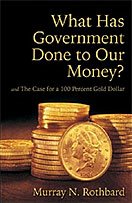

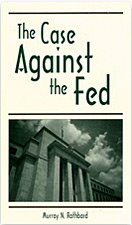
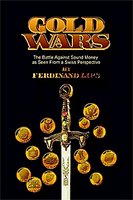
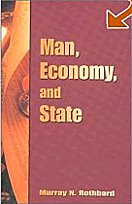

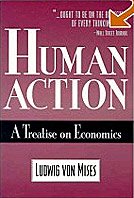
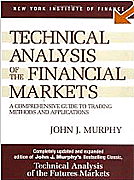
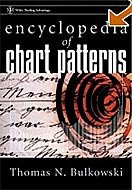




0 ΣΧΟΛΙΑ (COMMENTS):
Post a Comment
<< Home